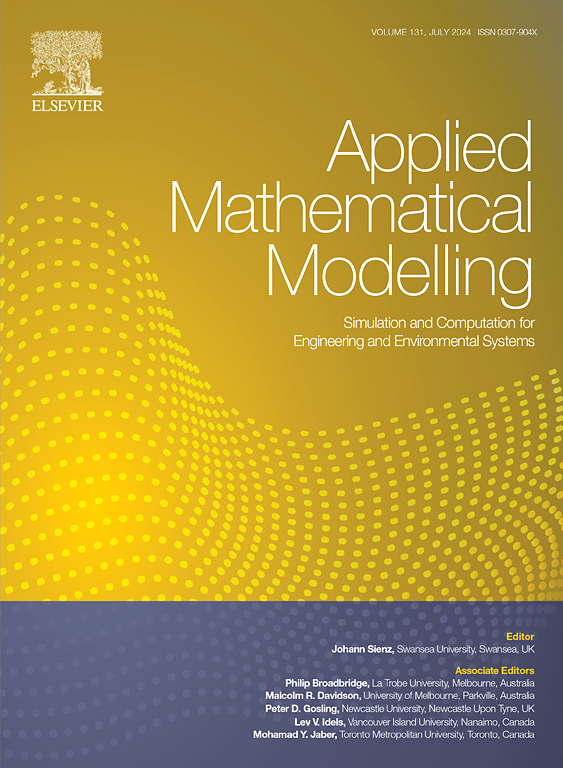具有随机噪声的柔性关节机器人的自适应性能优化控制:设计与实验
IF 4.4
2区 工程技术
Q1 ENGINEERING, MULTIDISCIPLINARY
引用次数: 0
摘要
本研究通过强化学习策略和事件触发机制,为具有随机噪声和非参数输入的柔性关节机器人开发了一种性能灵活的优化控制方案。值得注意的是,该研究开发了一种事件触发优化机制,既符合最优性原则,又节省了通信资源。然而,现有的事件触发策略无法处理非参数输入,这限制了该方法的适用性。为了克服上述问题,我们提出了一种改进的事件触发机制。同时,基于改进的性能指标函数,通过优化控制算法给出了系统的最优解。在控制器设计中,使用神经网络来处理随机干扰和不确定性,并设计了自适应法则来取代标识符结构。此外,还构建了灵活的规定性能函数,通过调整关键参数产生多种规定性能行为,同时将跟踪误差控制在规定边界内。最后,通过在 Quanser 平台上对双链柔性关节机器人进行仿真和实验,进一步证明了所提控制方案的有效性。本文章由计算机程序翻译,如有差异,请以英文原文为准。
Adaptive performance optimal control for flexible-joint robots with random noises: Design and experiment
This study developes a flexible performance optimal control scheme via reinforcement learning strategy and event-triggered mechanism for flexible-joint robots with random noise and non-affine input. It is notable that an event-triggered optimization mechanism is developed, which meets the optimality principle and saves communication resources. Nevertheless, the existing event-triggered strategy is unable to handle non-affine input, which limits the applicability of this method. To overcome the above problems, a modified event-triggered mechanism is proposed. At the same time, the optimal solution of the system is given by an optimized control algorithm based on the improved performance index function. In the controller design, neural network is used to deal with random disturbances and uncertainties, and an adaptive law is designed to replace the identifier structure. Besides, a flexible prescribed performance function is constructed to yield multiple prescribed performance behaviors by adjusting the key parameters, while the tracking error is stayed within a prescribed boundary. Finally, the effectiveness of the proposed control scheme is further demonstrated by simulation and the experiment of the 2-link flexible-joint robot on the Quanser platform.
求助全文
通过发布文献求助,成功后即可免费获取论文全文。
去求助
来源期刊

Applied Mathematical Modelling
数学-工程:综合
CiteScore
9.80
自引率
8.00%
发文量
508
审稿时长
43 days
期刊介绍:
Applied Mathematical Modelling focuses on research related to the mathematical modelling of engineering and environmental processes, manufacturing, and industrial systems. A significant emerging area of research activity involves multiphysics processes, and contributions in this area are particularly encouraged.
This influential publication covers a wide spectrum of subjects including heat transfer, fluid mechanics, CFD, and transport phenomena; solid mechanics and mechanics of metals; electromagnets and MHD; reliability modelling and system optimization; finite volume, finite element, and boundary element procedures; modelling of inventory, industrial, manufacturing and logistics systems for viable decision making; civil engineering systems and structures; mineral and energy resources; relevant software engineering issues associated with CAD and CAE; and materials and metallurgical engineering.
Applied Mathematical Modelling is primarily interested in papers developing increased insights into real-world problems through novel mathematical modelling, novel applications or a combination of these. Papers employing existing numerical techniques must demonstrate sufficient novelty in the solution of practical problems. Papers on fuzzy logic in decision-making or purely financial mathematics are normally not considered. Research on fractional differential equations, bifurcation, and numerical methods needs to include practical examples. Population dynamics must solve realistic scenarios. Papers in the area of logistics and business modelling should demonstrate meaningful managerial insight. Submissions with no real-world application will not be considered.
 求助内容:
求助内容: 应助结果提醒方式:
应助结果提醒方式:


